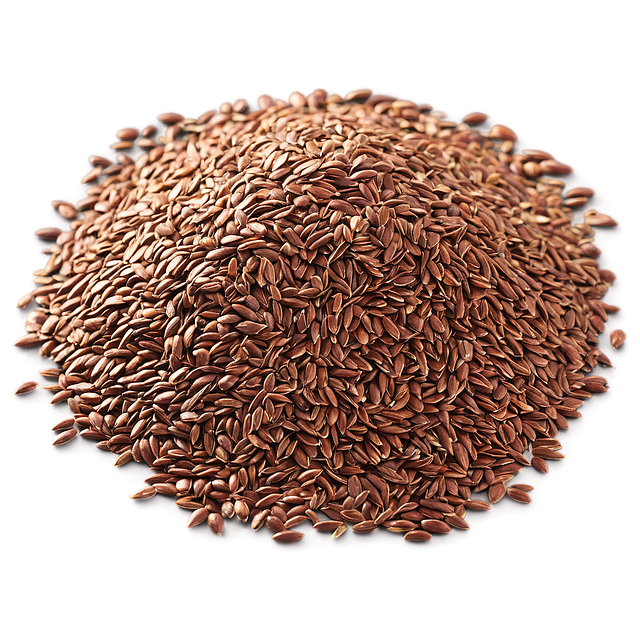
Why Flaxseeds Deserve a Spot in Your Diet
Flaxseeds are small but mighty—loaded with dietary fiber, plant-based protein, and omega-3 fatty acids. These nutrient-dense seeds are widely recognized for their potential to support heart health, improve digestive function, and offer a range of other wellness benefits. Whether consumed whole, ground into flaxseed meal, or taken as flaxseed oil, they make an easy addition to most diets. However, it’s important to monitor your intake and consult with a healthcare provider if you’re on medications, as flaxseeds may interact with certain drugs.
01: Flaxseeds and Cancer Prevention: A Natural Line of Defense
Flaxseed’s Potential Role in Hormone-Related Cancers
Flaxseed has drawn attention for its potential supportive role in hormone-related cancers, particularly due to its high lignan content—plant compounds known to interact with estrogen receptors. Preclinical studies have shown promising results; for example, when flaxseed was combined with tamoxifen (a common breast cancer medication) in animal models, researchers observed reduced tumor growth in estrogen receptor-positive (ER-positive) breast cancers.
However, it’s important to note that these findings haven’t yet been confirmed in human clinical trials involving tamoxifen and flaxseed use. As a precaution, health experts advise individuals diagnosed with breast or prostate cancer to stick to flaxseed only in dietary amounts—such as ground seeds sprinkled on foods—and to avoid concentrated flaxseed supplements unless guided by a healthcare provider.
02: Digestive Health Support
Science-Backed Relief for Constipation
Flaxseed offers a natural solution to constipation, thanks to its impressive fiber content—25% soluble and 75% insoluble fiber. Soluble fiber supports the growth of healthy gut bacteria, while insoluble fiber boosts stool bulk and promotes regularity.
In one study, daily intake of 50 grams of flaxseed for 30 days led to significant improvements in bowel movement frequency, reduced bloating, and better gut flora diversity. Additional research even found flaxseed flour more effective than lactulose, a widely used stool softener.

03: A Fiber- and Omega-3-Rich Ally for Your Heart
🫀 How Flaxseed May Benefit Heart Health
While more research is needed, several bioactive compounds in flaxseed—essential fatty acids (like ALA), lignans, and dietary fiber—are believed to contribute to a variety of heart-protective effects. These include:
- Antihypertensive (blood pressure-lowering) properties
- Anti-atherogenic effects that help prevent plaque buildup in arteries
- Cholesterol-lowering activity, particularly LDL (“bad”) cholesterol
- Anti-inflammatory actions that support vascular health
- Inhibition of arrhythmias, helping stabilize abnormal heart rhythms
One scientific review concluded that flaxseed may slightly reduce blood pressure—a modest effect, but one that could still offer meaningful cardiovascular protection, especially for individuals managing hypertension.

04: Stabilizes Blood Sugar and Reduces Diabetes Risk
🩺 Flaxseed May Improve Blood Sugar Control in Type 2 Diabetes and Prediabetes
Research suggests that individuals with type 2 diabetes or prediabetes may benefit from flaxseed supplementation. In several studies, participants experienced measurable improvements in key blood sugar markers, including:
- Lower fasting blood glucose
- Reduced hemoglobin A1c (HbA1c)
- Improved insulin sensitivity
In one clinical trial, individuals with prediabetes consumed either 40 grams or 20 grams of flaxseed powder daily over 12 weeks. Both groups saw reductions in fasting blood sugar, but the group taking 40 grams per day experienced the most significant results.
However, the study noted that flaxseed did not significantly improve insulin resistance, highlighting the need for further research.¹¹
05: Flaxseed for Hormonal Balance During Menopause
Can Flaxseed Soothe Menopause Symptoms?
Flaxseed has shown some potential in easing hot flashes, with mild improvements in both intensity and frequency. It’s also been studied for its role in supporting vaginal health during menopause. However, the results weren’t definitive, and other symptoms like mood changes and sleep disturbances showed little to no change.
Until stronger evidence is available, flaxseed should be viewed as a complementary support, not a replacement for conventional treatment.

🥄 Flaxseed Nutritional Information (Per 1 Tablespoon / ~10 grams of Ground Flaxseed)
| Nutrient | Amount |
|---|---|
| Calories | 37 kcal |
| Protein | 1.3 g |
| Fat | 3.0 g |
| — Saturated Fat | 0.3 g |
| — Polyunsaturated Fat | 2.0 g |
| — Omega-3 (ALA) | 1.6 g |
| Carbohydrates | 2.0 g |
| — Fiber (Total) | 1.9 g |
| — Soluble Fiber | ~0.5 g (est.) |
| — Insoluble Fiber | ~1.4 g (est.) |
| Sugar | 0.1 g |
| Calcium | 17.8 mg |
| Iron | 0.4 mg |
| Magnesium | 27.4 mg |
| Phosphorus | 44.9 mg |
| Potassium | 56.9 mg |
| Lignans | ~85–300 mg |
Flaxseed is generally considered safe for most people when consumed in moderation. However, certain individuals should use caution or avoid it altogether:
1. Pregnant Individuals
While flaxseed contains beneficial nutrients, there is limited research on its safety during pregnancy. Some studies suggest that its phytoestrogens (plant-based estrogen-like compounds) may affect hormone levels, potentially impacting pregnancy outcomes. Until more is known, it’s best to consult a healthcare provider before using flaxseed while pregnant.²
2. Breastfeeding Individuals
There is limited data on the safety of flaxseed during lactation. Although no harmful effects have been widely reported, it’s advisable to check with your healthcare provider before adding flaxseed to your diet while breastfeeding.¹⁴
3. Individuals with a Flaxseed Allergy
Though rare, some people may experience allergic reactions to flaxseed, including hives, difficulty breathing, or gastrointestinal distress. If you have a known or suspected flax allergy, avoid all forms of flaxseed.¹⁴
4. Those on Certain Medications or Supplements
Flaxseed may interact with:
- Blood thinners (like warfarin)
- Diabetes medications
- Hormonal treatments
- Other herbal supplements
Because flaxseed can affect how the body processes certain drugs, always consult your provider if you’re taking any medications or supplements.
🥄 How to Incorporate Flaxseed into Your Diet
Here’s how you can easily add flaxseed to everyday meals:
- Ground Flaxseed (best absorbed by the body):
- Stir into smoothies, oatmeal, or yogurt
- Mix into pancake or muffin batter
- Sprinkle on salads, soups, or cereal
- Whole Flaxseed:
- Add to homemade granola or trail mix
- Use as a crunchy topping for baked goods
- Can be ground in a coffee/spice grinder before use
- Flaxseed Oil (do not heat):
- Drizzle over roasted veggies or grains
- Add to dressings, dips, or hummus
- Use as a finishing oil for warm dishes
📝 Tip: Start with 1 tablespoon per day and drink plenty of water to prevent digestive discomfort.
✅ Key Takeaways:
Low in Carbs: Suitable for low-carb or keto-friendly diets.
Rich in Omega-3s (ALA): Supports heart and brain health.
High Fiber Content: Promotes gut health and regularity.
Lignans: Powerful plant compounds that may support hormone balance.

